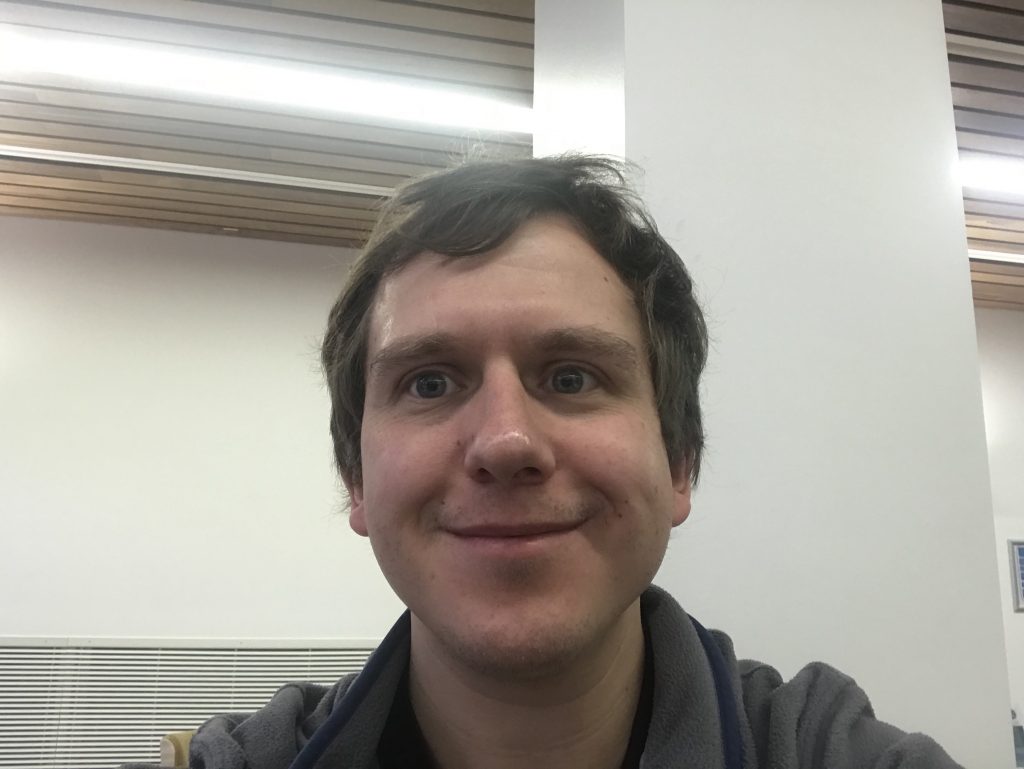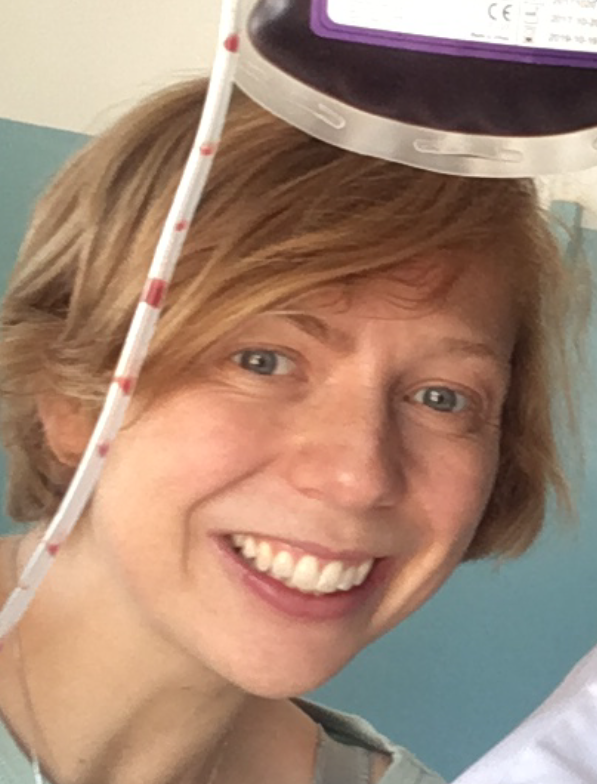Barriers and facilitators to engagement within teaching and learning during medical school: a nationwide cross-sectional questionnaire to encourage inclusivity and engagement
In this study, jointly conducted with University College London, we explored attitudes towards teaching and learning at medical school. The survey was conducted during the Covid-19 pandemic. The paper provides insight into the challenges faced by medical students in engaging with teaching and learning during medical school. We demonstrated that students may face a range of challenges engaging with learning, which may be contributing to an awarding gap seen. Examples include access to resources and the personal cost of attending clinical placement. We recommend that medical schools utilize the recommendations from this study to inform local dialogue and co-create local solutions.
Things to ask yourself:
Read the study below, then answer (either individually or as a group) the following questions:
- What can you do at your own institution to try to overcome some of these barriers identified in this study?
- What steps can you take at your institution to address differential attainment?

A week in the life as a post-CCT GP teaching fellow- Dr Mike Harrison
My name is Michael Harrison and I am currently a post-CCT GP teaching fellow working at Newcastle University. This post is for one year and jointly funded by Newcastle University and Health Education England. It is 50% full time, with the rest of my working week spent as a salaried GP at Spring Terrace Health Centre in North Shields. My working days for this teaching post are all-day Monday, Tuesday afternoons and all-day Thursday. I would like to describe a week in this role, in order to demonstrate the variety of the work, the potential individual benefits of doing such a post, and the efforts being made to showcase General Practice and academic General Practice to our medical students.
‘MMIs’ Monday
This Monday morning, I am interviewing applicants applying to study medicine at Newcastle University. Newcastle University currently uses ‘multiple mini-interviews’(also known as MMIs), rather than traditional panel interviews, to decide who to accept on their MBBS course. MMIs involves applicants undergoing seven stations in a timed circuit with different assessors, with each station assessing a different domain. I am assessing applicants on their motivation and commitment to study medicine. The quality of the applicants is overall very high, and I find it an interesting and enjoyable experience! Interestingly, GP involvement in selection processes across UK medical schools is low, and GPs are under-represented as interviewers. Recent data suggests, on average, around 10% of interviewers are GPs, with a range of 0 to 25%. If we want to attract more medical students into choosing a career in GP, we need to raise the profile of GP prior to medical school entry; and ensuring fair representation of GPs and GP trainees in medical school selection processes is vital to achieve this.
In the afternoon, I head to the library to do some work on my Masters project. I completed GP training 18 months ago, but extended my ST3 year in order to complete an Extended Integrated Training Post (ITP) in Medical Education. During this ITP post, I completed the Certificate and Diploma in Medical Education. I am now doing the Masters in Medical Education, which involves completing a research project and dissertation. One of the benefits (of both ITP and post-CCT teaching fellow posts) is that there is usually funding included for a post-graduate qualification in Medical Education. The Certificate in Medical Education is particularly relevant to those who wish to develop and improve their own personal teaching practices. My Masters project is exploring how a change in teaching role is affecting motivation to teach in third year GP clinical teachers. This project came about because significant curricula changes at Newcastle University have resulted in a change in the teaching role of third year GP clinical teachers, e.g. GP clinical teachers are now providing academic mentorship and taking increasing responsibility to teach core clinical topics. This is great news for General Practice as it means students are having increased exposure to GP role models and generalist medicine, but such changes have the potential to both positively and negatively affect teacher motivation. Understanding this is important because many medical schools are struggling to recruit and retain enough GP clinical teachers.
‘Tough’ Tuesday
On Tuesday morning, I am on-call at the practice and have a very busy morning. I manage to get away at 1.30pm, which is later than I had hoped for. One of the challenges of this post is juggling the different jobs, and I find getting away on time on a Tuesday particularly challenging! However, I have no doubt that my organisation and time management skills have improved as a result of this and previous teaching posts, and others have reported the same.
In the afternoon, I check my e-mails and do some preparatory work for teaching later on in the week, before a Facetime video call at 5pm with an Academic Clinical Fellow and GP from Exeter University. He contacted our team a few weeks prior wanting to share ideas and collaborate regarding how best to promote and encourage GP Specialities trainees (GPSTs) to teach. Our team has done some previous work looking at the barriers to involving GPSTs in the teaching of medical students in primary care. Health Education England, in its report ‘By Choice not by Chance’, made recommendations that ‘positive and enthusiastic General Practitioner role models should be identified and made visible across all medical schools’. Yet, whilst hospital doctors are often found on the wards teaching medical students, GPSTs whilst on placement in primary care seem to be less involved in teaching than their hospital-based peers. This seems a huge missed opportunity because GPSTs can be great role models to medical students, and students value being taught my doctors closer in age and stage to them (so-called ‘near peer’ teaching). We discuss ways in which it may be possible to promote GPSTs as teachers, and agree a plan of how to proceed from here regarding future collaborations.
‘Thoughtful’ Thursday
As part of the post-CCT teaching fellow role, I am currently supervising fourth year medical students who are undertaking a Student Selected Component (SSC) in Medical Education. SSCs are six-week rotations that are selected by the student: the SSC in Medical Education specifically gives students the opportunity to get involved in some hands-on teaching, learn some basic educational theory and carry out a small educational project. The SSCs runs consecutively for three blocks after Christmas, and this is the first week of the first block. Today, we have an introductory session, in which we cover the structure of the SSC, the student’s own goals for the rotation, and the learning opportunities available to her. We then have a 40 minutes seminar on basic teaching methods and lesson planning. I am always surprised by the huge amount of teaching experience the students who choose this SSC already have: the current SSC student is a tutor for A-level maths to sixth form students!
This post has certainly allowed me to develop my own teaching skills, as well as skills of mentorship and supervision. I think that these latter skills are particularly important in modern General Practice, with increasing numbers of learners situated in primary care ,e.g. nurse practitioners, physios, paramedics, requiring supervision and mentorship, usually from GPs. The mentorship skills I have developed in this post have been transferable to my day to day GP work, and I am currently mentoring a nurse practitioner doing her Advanced Nurse Practitioner course at Northumbria University. I certainly would not have felt comfortable doing this had it not been for the experience gained doing this and previous posts.
In the afternoon, there is a team meeting at the medical school. There is now an extended team of GP trainees (doing Integrated Training Posts in Medical Education), and GP teaching fellows, all attached to the School of Medical Education. The team is lead by Hugh Alberti, sub-dean for Primary and Community Care at Newcastle University. We discuss updates in medical education, such as the new Longitudinal Integrated Clerkships being introduced in fourth year at Newcastle University, some research methods e.g. one of the teaching fellows gave a talk on scoping reviews, and the various educational projects being undertaken by members of the group. The meeting allows an opportunity for peer feedback and support.
Conclusion
I hope this blog gives an insight into the nature of work involved in a post-CCT GP teaching fellow job. What this blog is able to convey less well is the sheer variety of work done: in fact, no two weeks are the same! There are teaching opportunities across all years of study, on both the MBBS and Physician Associate programmes…as well as attend conferences, develop academic and research skills, publish research papers and develop new teaching materials. Underpinning all of this work is the motivation to raise the profile of General Practice to medical students, showcase its potential as a varied and interesting future career, and provide high quality and innovative teaching.
A week in the life of an ITP- Dr Helen Finnamore

Monday
Phew! Busy morning as duty doctor – lots of patients with urgent complaints, a couple of ECGs and a wound to review for the nurses, and an acute admission to the medical team. Prescriptions to be signed and a handful of telephone triage calls. Just one home visit and then back to the practice for the monthly MDT to discuss some of our patients with palliative needs.
A routine surgery this afternoon – reviewed a few patients that I have seen over the past few weeks – one has resulted in a referral to gynae, one is doing much better on his antidepressants and one was after stronger pain relief. There was also a teenage with Downs Syndrome who had been having some behavioural concerns at school – had to ask my supervisor for some advice with this case. We had a good 30 minute debrief at the end, about how they day has gone in general, and looking at some of my more challenges cases. Next time, I mustn’t forget to let the patient stand for 3 minutes before I do their standing BP…
Tuesday
Catching up on a couple of emails this morning before sitting down to prepare some resources for the new curriculum. The brief is to produce a 3 hour session on dementia for 3rd years doing their mental health rotation. I’ve accessed the university Medical Learning Environment (MLE) to make sure that I have covered their learning outcomes, but also produce a realistic lesson plan so that other GP tutors can easily follow it. It has certainly refreshed my own learning on dementia.
This afternoon I’m off to a GP practice in Middlesbrough to deliver a 2.5 hour prescribing tutorial about eight 5th years on their GP rotation. The practice had prepared the room with a flip chart (no pens that worked though, good job I now carry them round with me!). The students were engaged – although I wish I’d brought some snacks to keep them going as they were flagging after 2 hours. They’ve filled in some feedback forms that I brought and suggested that it could have been a bit more interactive. Maybe next time I’ll try a quiz at the beginning to activate their prior knowledge.
Home now. Just got to make sure that I’m prepared for the 3rd year session in the GP tomorrow. I’ve organised for 2 patients to come in – one with a great history of heart failure and one with a murmur due to aortic stenosis. I hope they remember to come…
Wednesday
Both patients turned up that that was a relief! It helps having the reception staff on board, as they can contact patients to invite them in and remind them the day before. Occasionally I have been a bit last minute and this makes it stressful. Organisation seems to be the key in this job…
After the history and examination, the student pairs presented the cases and we discussed areas they could improve. Generally, their communication skills are good, although they still are struggling with ‘ICE’. They also need to speed up a little in preparation for their exams.
We did a tutorial on hypertension that had been set by one of the other ITPs – the students had done their pre-reading, which meant that we had a detailed discussion about diagnosis and management.
(Next week I’ll be at the VTS for the morning so I probably need to ask the other GP tutor to organise a respiratory patient)
This afternoon is my half day of personal study. I’ve got a home visit to do, and then I’m going to head to do some revision for CSA with my peers from the VTS. I need to make sure that I do some more learning logs; I’ve got loads of evidence in the ‘teaching and training’ strand, but need to find some more examples of managing patients with genetic related issues. The case of the young lady with Down’s Syndrome is probably a good example of managing a genetic condition.
Thursday
Up to the big city today! Do I bus, train or drive from Teesside…?! As part of the ITP, I’m studying the diploma in medical education (I did the certificate last year). It will be a full-on day, as we are working towards a project called ‘Current Educational Issues’. I’ve prepared a short presentation on the hot topic of ‘teaching resilience’, and am hoping for some critique from my peers and tutor so that I can get on with writing an abstract proposal.
The day went well – finished by 4.30, but needed to stay behind to catch the tutor to ask some questions. He was really helpful and suggested I email him with any more queries. Going to have a catch up with some of the others from ITP who have been at our monthly meeting. I had a bit of a clash with my timetabling because of the diploma day, which is a shame, as it is a good opportunity to hear how other people’s research projects are going on. I think I might have to do some number crunching next week, with the data that we’ve got from the survey we sent out.
Friday
Back for a day of GP. It feels a nice mix of clinical and educational work each week – means that I don’t seem to get tired of seeing patients. I’ve heard that there is going to be a lot more opportunity to teach students in primary care over the coming years, due to the increased time they spend in GP with their new curriculum. I think this job will stand me in good stead as I look for a permanent position.
Not a bad day overall, quite a few bloods to process by the end of the week, and a couple of letters to dictate. It turned into quite a busy afternoon as it is a bank holiday weekend, so lots of patients’ worried that they may run out of medications or need to be seen. I’m down to do an out of hours shift on the bank holiday Monday morning, so I suspect that will keep me out of trouble…
